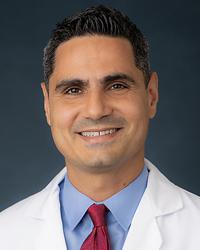Research Lab Results
-
Zanvyl Krieger Mind/Brain Institute
The Zanvyl Krieger Mind/Brain Institute is dedicated to the study of the neural mechanisms of higher brain functions using modern neurophysiological, anatomical and computational techniques. Our researchers use various approaches to understand information processing and its influence on perception, memory, abstract thought, complex behavior and consciousness. Systems and cognitive laboratories use neurophysiology, brain imaging and psychophysics to develop a quantitative, network-level understanding of cognitive information processing. Other researchers use analytical approaches such as system identification, dimensionality reduction, information theory and network modeling to understand information processing. Other areas of research in the Institute include the study of how visual and tactile information processing leads to perception and understanding of two- and three-dimensional objects. Another focus is on neural processing and recognition of speech and other complex sounds. Still other laboratories study neural mechanisms of attention, memory formation, motor learning, decision-making and executive control of behavior. -
Laboratory of Vestibular NeuroAdaptation
The Laboratory of Vestibular NeuroAdaptation investigates mechanisms of gaze stability in people with loss of vestibular sensation. A bulk of our research investigates motor learning in the vestibulo-ocular reflex (VOR) using different types of error signals. In addition, we investigate the synergistic relationship between the vestibular and saccadic oculomotor systems as trainable strategies for gaze stability. We are particularly interested in developing novel technologies to assess and deliver improved rehabilitation outcomes. We are validating a hand-held computer tablet for assessment of sensorimotor function and participating in a clinical trial comparing traditional vestibular rehabilitation against a device developed in our laboratory that can unilaterally or bilaterally strengthen the VOR. Members of the lab include physical therapists, physicians, engineers, statisticians and post-doctoral fellows. The laboratory is supported by generous grant funding from NASA, the NIH, the DOD and grateful patients -
Wang Lab
Our laboratory is interested in understanding the neural basis of auditory perception and vocal communication in a naturalistic environment. We are interested in revealing neural coding mechanisms operating in the cerebral cortex and how cortical representations of biologically important sounds emerge through development and learning. -
Kathleen Sutcliffe Lab
Researchers in the Kathleen Sutcliffe Lab study organizational adaptability, reliability and resilience. Our work examines how factors such as management teams, group dynamics, information search processes, communication and learning processes affect organizational performance. Our team also studies how an organization’s design and culture affect members’ abilities to sense, manage and respond to dynamic demands. Additionally, our work seeks to better understand the factors that promote individual and organizational resilience. -
Ocular Motor Physiology Laboratory
Our research is directed toward how the brain controls the movements of the eyes (including eye movements induced by head motion) using studies in normal human beings, patients and experimental animals. The focus is on mechanisms underlying adaptive ocular motor control. More specifically, what are mechanisms by which the brain learns to cope with the changes associated with normal development and aging as well as the damage associated with disease and trauma? How does the brain keep its eye movement reflexes properly calibrated? Our research strategy is to make accurate, quantitative measures of eye movements in response to precisely controlled stimuli and then use the analytical techniques of the control systems engineer to interpret the findings. Research areas: 1) learning and compensation for vestibular disturbances that occur either within the labyrinth or more centrally within the brain, 2) the mechanisms by which the brain maintains correct alignment of the eyes to prevent diplopia and strabismus, and 3) the role of ocular proprioception in localizing objects in space for accurate eye-hand coordination. -
Neuroimaging and Modulation Laboratory (NIMLAB)
The neuroimaging and Modulation Laboratory (NIMLAB) investigates neural correlates of cognition and behavior using neuroimaging methods such as functional magnetic resonance imaging (fMRI) and neuromodulation techniques such as transcranial magnetic stimulation (TMS). We are looking in depth at the contributions of the cerebellum and cerebro-cerebellar circuits to cognition; the effects of chronic heavy alcohol consumption on cognition and brain activation underlying cognitive function; how aging in humans affects neural systems that are important for associative learning and stimulus awareness; and the integration of transcranial magnetic stimulation with functional MRI. -
Mathioudakis Lab
The Mathioudakis lab is focused on developing and evaluating clinical decision support systems, technology, and mHealth for diabetes prevention and management. Our lab leverages large electronic medical record databases and uses machine learning algorithms and artificial intelligence to identify patterns in clinical care associated with optimal clinical outcomes. We are interested in understanding the role that advanced diabetes technologies can play in improving health outcomes for patients with diabetes. Our lab has published extensively on outcomes related to diabetes prevention and diabetes management and outcomes. Based on data from our long-term (over 10 year) clinic-based prospective cohort study from the Johns Hopkins Multidisciplinary Diabetic Foot and Wound Clinic, we have published extensively on clinical predictors and outcomes of patients with diabetic foot ulcers, focusing specifically on the role that glycemic control plays in patients with this complication. Healthcare disparities exist throughout medicine, but are particularly prominent in diabetes; our lab has evaluated healthcare inequities in diabetes outcomes and is developing and evaluating strategies to overcome them. In addition to identify optimal management approach to diabetes and its complications, our lab is interested in development and evaluation of innovative technology approaches to diabetes prevention. -
Merguerian Lab
A basic and translational science laboratory focused on diseases of platelets. We are interested in learning the physiologic mechanisms of platelet function, characterizing the genetic variants that can cause inherited platelet dysfunction, and developing therapeutics that can modulate platelet function to ameliorate human disease.

-
Marshall Shuler Laboratory
The Marshall Shuler Laboratory aims to understand the means by which brain reward systems convey reward value, expectancy, quality, probability and utility, and the rules by which such activity is used to affect synaptic weight within brain networks to encode stimulus-action associations. We use an interdisciplinary approach combining multisite recordings of neural activity, targeted pharmacological manipulation, viral-mediated gene transfer and behavior to study the neural mechanisms of reward-based interval learning in the primary visual cortex. -
Maura McGuire Lab
The Maura McGuire Lab focuses on the improvement of quality and safety in ambulatory medicine through care management, point-of-care laboratory testing, and electronic health records and care delivery optimization. We also study the use of assessment and technology to augment learning in health care professionals and primary care physicians.



